How do you know if your invention is marketable? When is the right time to apply for IP protection? How do you decide if you should start your own company? How do you find investments or partnerships to take your idea from lab to market?
Course Description
This 12-week online course offers live classes that are recorded for on demand viewing. The course provides a condensed introduction to the process of taking your innovative idea from conception through pitching a product to potential investors. A committee of experts for translational research projects and investment organizations will provide feedback and select the winners.
Course objectives
- To understand the process, “from soup to nuts,” for successful research translation from conception and evaluation of ideas through protection of intellectual property, FDA approval, communication and business strategies, and pitch presentation.
- To develop a project from idea to business strategy and pitch presentation in small teams with expert mentoring
- To gain understanding of investor needs and practice the pitching of ideas for successful presentations to potential investors
Course Details
Dates / Times
Registration is closed.
Additional Details
- All participants are eligible for free coaching on preparation and presentation of a project poster at Forsyth dentech 2023 if they choose to apply to present at the conference.
- All participants will receive a Certificate of Completion from the Forsyth Institute
- The winning team will receive 3 free consulting hours with experts for legal and translational advice (estimated value of > $5,000)
- The winning team will also be selected to present at Forsyth dentech 2023. In its first round Forsyth dentech served as a launching pad for eight companies with $32M raised.
Course Schedule and Instructors
Week 1: Developing and assessing project ideas
The class will cover the fundamentals of how to identify needs and evaluate whether ideas serve a need and have the potential for a successful product.
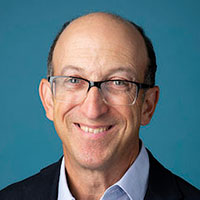
Richard Anders is an investor and long-time entrepreneur. He is the Founder and Managing Director of Mass Medical Angels, a leading life science angel group. He founded the legal software publishing company Jurisoft, which he sold to Lexis/Nexis, published newspapers including Boston Digital Industry and New York Digital Industry and currently serves as managing director of Rubin/Anders Scientific, which places scientists as consultants in patent projects. He has invested in approximately two dozen early-stage startups.
Richard is an overseer at the Museum of Science in Boston where he served as a trustee for nearly 20 years. At the museum he was most recently a member of the food committee, exploring science education around the issues of food and its preparation. He is a trustee of the Forsyth Institute and an overseer at the Brigham & Women’s Hospital and the Gardner Museum. Richard founded and currently runs MA Medical Angels (MA2), one of the country’s leading angel groups focused exclusively on life sciences. He has founded the angel group Launchpad, the nationally renowned Science on Screen event at the Coolidge Corner Cinema and was a founding trustee of the Massachusetts Interactive Media Council.
Over many years, he has served on numerous university grant and patent committees and was the life science advocate at Mass Challenge. He served for many years as a member of the Dana Farber Cancer Center Institutional Review Board. He has been a board member or board observer at multiple life science startups.
Richard teaches medical device entrepreneurship at the Harvard/MIT HST program. He is a graduate Summa Cum Laude in Mathematics from Harvard and holds a J.D. from Harvard Law School.
Richard currently serves on The Forsyth Institute’s Patent Committee, Investment Committee and Finance Committee.
Week 2: IP Protection and Licensing
Learn how to decide between creating a new company or joining an existing company.
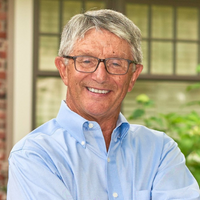
The Focus IP Group provides a variety of consulting services in intellectual property matters, including serving as an Expert Witness in intellectual property disputes, technology scouting, technology transfer and teaching the commercialization of early stage technologies.
For 15 years, Dr. Stevens led Boston University’s Office of Technology Transfer. He then became Special Assistant to the Vice President for Research for two years before retiring from full time employment at BU. For ten years he was a Lecturer in the Strategy and Innovation Department in Boston University’s Questrom School of Business, where he taught two graduate-level, inter-disciplinary courses on Technology Commercialization. Before joining Boston University, he was Director of the Office of Technology Transfer at the Dana-Farber Cancer Institute, a teaching affiliate of the Harvard Medical School.
During his tenure at Boston University, the Office of Technology Development spun out over 50 companies based on the University’s research, a number of which raised substantial amounts of capital, and the University’s licensing income climbed steadily.
He was a Guest Professor at Osaka University, Japan, where he taught G-TEC, an intensive summer course on technology commercialization, and a Principal Investigator at the National University of Singapore (Suzhou) Research Institute, where he teaches professional development courses on technology management. He has taught in Belgium, 31 countries in both developed and emerging economies
Prior to entering the technology transfer profession, Dr. Stevens worked in the biotechnology industry for nearly ten years. He was a co-founder of Kytogenics, Inc. and Genmap, Inc., and was Vice President of Business Development for BioTechnica International. He started his career with The Procter & Gamble Company, where he held a number of positions in commercial development, sales, marketing, product management, strategic planning and acquisitions and mergers.
Dr. Stevens publishes and lectures frequently on many aspects of technology transfer, including the Bayh-Dole Act, the economic impact of technology transfer and its role in economic development, the contribution of academia to the discovery of new drugs, vaccines and medical devices, the role of technology transfer in global health and technology valuation. He was the recipient of the Bayh-Dole Award at the Association of University Technology Managers (AUTM) 2007 Annual Meeting and became President of AUTM in March 2010. He is also active in the Licensing Executives Society.
Dr. Stevens holds a Bachelor of Arts in Natural Sciences, a Master of Arts and a Doctor of Philosophy in Physical Chemistry from Oxford University. He is a Certified Licensing Professional and a Registered Technology Transfer Professional.
Week 3: Proof of Concept (PoC) and Trials
Understand FDA regulations for Class I, II, and III devices and related requirements for PoC studies and FDA approval.
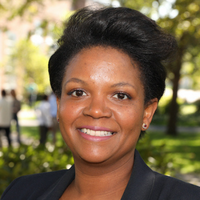
Carline M. Durocher is the executive responsible for Forsyth’s legal and compliance functions, including general corporate transactions, corporate governance, regulatory compliance, and risk management.
Prior to her legal career, Carline was a technology research analyst at AMR Research, which was acquired by Gartner. She advised senior executives on their technology initiatives across multiple industries, including energy and regulated industries, automotive and aerospace and defense. Carline also published reports on enterprise performance management, asset performance management, IT portfolio management and outsourcing strategies.
Carline received an A.B. from Dartmouth College and a J.D. from Boston College Law School. She also completed the General Management Program (GMP) at Harvard Business School and serves on the HBS Global Alumni Board.
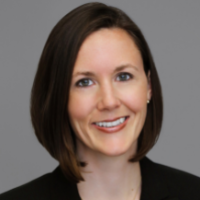
Dr. Courtney Prochnow focuses her practice on biotechnology. Courtney has represented clients in patent litigation cases in district court, and inter partes review, reexamination, and interference proceedings before the United States Patent and Trademark Office. She also provides clients with a broad range of intellectual property services, including patent procurement, strategic patent counseling, and due diligence. Courtney has assisted clients in a variety of technological areas including antibody therapeutics, genome editing (e.g., CRISPR/Cas systems), chimeric antigen receptor (CAR) T-cell therapies, small molecule and nucleic acid therapeutics, vaccines, recombinant proteins, genetic diagnostic methods, and chemical synthesis. Representative clients include start-up companies, private and public research institutions, biotech companies, and large pharmaceutical companies.
Courtney was trained as a structure biologist. She has scientific experience in a wide range of fields, including x-ray crystallography, drug discovery, DNA mutagenesis, biochemistry, virology, and cell biology. Her technical experience includes molecular techniques such as recombinant protein purification, cloning, cell culture, biochemical assays, and high-throughput compound screening.
For her dissertation research at the University of Southern California, Courtney solved the first x-ray crystal structure of a member of the apolipoprotein B messenger RNA-editing enzyme catalytic (APOBEC) polypeptides family of enzymes, which are involved in viral restriction and antibody diversification. Her post-doctoral research involved designing small molecules to disrupt the APOBEC3G/VIF (Viral Infectivity Factor) interaction for HIV therapy using structure-based drug design. She also performed a structural analysis of the antiviral APOBEC3G cytidine deaminase to determine its functional properties. Courtney has eight peer-reviewed publications, including two first author publications in Nature.
Courtney is a writer for Life Science Legal Report, the firm’s blog focused on patent decisions and developments affecting the life sciences industry.
Week 4: Regulatory and Reimbursement Strategies
Understand regulations on orphan diseases, the process of designation, and the opportunities for treatment. Learn about US biomedical reimbursement aspects that are critical to assess an opportunity, develop and execute a business plan, and determine the commercial success of a product.


Dr. Timothy R. Coté, MD MPH, is a renowned national regulatory expert in orphan drug
regulatory affairs. He is founder and CEO at Only Orphans Cote with offices in Cambridge MA and Washington DC, leading a select team of experts in rare diseases and orphan drug
regulatory affairs strategy. As former Director of the Office of Orphan Product Development
(OOPD) at FDA, between 2007 – 2011, Dr. Cote led the agency’s efforts in implementing the
Orphan Drug Act and personally signed decisions on 1400+ orphan drug designation applications. Dr. Coté received a bachelor’s degree from Syracuse University and his medical doctorate from Howard University College.
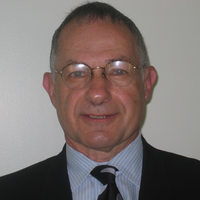
A senior healthcare executive with more than 35 years of experience in life science and medical technology reimbursement analysis, planning and advocacy, Ed Berger founded Larchmont Strategic Advisors in 2005 to help companies across the medical technology and life sciences sectors deal effectively with the strategic challenges and opportunities posed by the rapidly evolving healthcare reimbursement and policy environment. Building upon the knowledge and experience gained as a member of the management teams of such companies as Fresenius Medical Care, Thermo Cardiosystems, and ABIOMED, Dr. Berger has provided reimbursement analysis and strategy development consultation to a variety of clients in fields including mechanical circulatory support, orthopedics, neural monitoring and neuromodulation, gastrointestinal surgery, severe pulmonary dysfunction, nuclear medicine, diagnostic imaging, clinical laboratory testing, and personalized medicine.
Week 5: Assessing New Inventions
Learn to evaluate intellectual property (IP) aspects of your idea, when and how to protect IP for your project and common pitfalls in the process.

Week 6: Partnering/Non-Dilutive Fund Raising
Learn about key aspects of developing a product and company with external funding while maintaining equity and profitability of your startup.

Week 7: Use of Business Models
Learn how to develop and use business models for your project to attract potential investors.
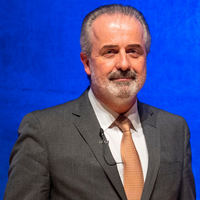
Sergi Trilla, M.D., M.B.A., is the Chief Business Officer at Veru. Dr. Trilla’s responsibilities include supporting international development of the Company’s product candidates by identifying markets, governments, and partners interested in Veru’s portfolio, negotiating applicable agreements, and providing alliance management.
Dr. Trilla holds 30 years of experience in healthcare, including 22 years in international and strategic corporate development. As a qualified M.D., Dr. Trilla connects the two fields of health and business to ensure innovation arrives to patients. Following multiple leadership roles at various pharmaceutical companies, Dr. Trilla founded Trifermed in 2002, a business service provider specializing in corporate development and alliance management. Dr. Trilla has applied its services to more than 160 worldwide strategic partnerships.
Dr. Trilla also serves as a Professor (Adjunct Faculty Member) of Business Translational Medicine at the Forsyth Institute (a Harvard-affiliated research institute) in Cambridge, MA, and as a visiting professor on innovation, entrepreneurship, and digital health at Universidad de Navarra (Madrid, Spain).
Week 8: Selection of Partnerships: Communication (Elevator Pitch, Teaser)
Learn how to successfully communicate a project or product, select partners and effectively present pitches and teaser descriptions of the product.

Week 9: Two Case Studies
Two projects at Forsyth illustrate the process of successful translation, hurdles on the path, and how they were overcome.

Week 10: Distribution and Markets
How do big companies and investors evaluate new opportunities and potential acquisitions?
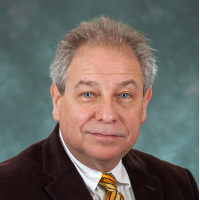
Bruce Lieberthal serves as the Chief Innovation Officer for Henry Schein, Inc., reporting to Chris Pendergast, Henry Schein’s Global Chief Technology Officer. In this role, he is at the nexus of evaluating hundreds of cutting edge solutions and technologies, advising the many medical and dental business units of Henry Schein on important emerging trends and helping connect the company’s global sales, marketing and distribution capabilities with important new products that help its customers run better practices and deliver excellent patient care.
Previously, from 2009 until 2015, he was the Vice President, Emerging Technologies for Henry Schein, Inc., reporting to the president of Henry Schein’s Global Practice Solutions Group. Bruce had oversight responsibility for Henry Schein Medical Systems (MicroMD) between 2011 and 2017 and currently leads Henry Schein One’s DDX business. He led the ConnectDental team for two years, which initiated Henry Schein’s digital dentistry initiatives, and worked closely with the Corporate Business Development Group advising on technology opportunities.
Bruce started, at Henry Schein, as the Director of Product Management to the leadership team in Utah when Discus Dental Software was acquired by Henry Schein, Inc. in May 2007 and was promoted, in 2008, to Vice-President of Product Management and Development, managing all of Henry Schein Practice Solutions’ software lines and development teams.
He was the founder of Direct Vision Software, the General Manager of Discus Dental Software and has been a leader in dental technology for almost 35 years.
Bruce graduated SUNY Oneonta in 1979, majoring in Anthropology and Pre-dentistry and SUNY Buffalo’s School of Dentistry in 1983, practiced dentistry for 14 years between 1984 and 1997, and brings much knowledge to the Henry Schein team.
Bruce currently serves on The Forsyth Institute’s Patent Committee.
Week 11: Presentation Practice
Participants will work in small teams with mentors to prepare their pitch presentation.
Mentors
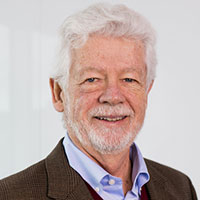
Dr. Thomas Van Dyke is Vice President for Clinical and Translational Research and Chair of the Department of Applied Oral Sciences. He provides leadership for Forsyth’s clinical research team and is responsible for expanding Forsyth’s clinical presence in the research community. Dr. Van Dyke drives the Institute’s efforts to expand Forsyth’s connections to industry and corporate partners.
Dr. Van Dyke is a world-renowned leader in translational research. His clinical research team has focused largely on drug treatment for periodontitis and issues related to systematic diseases such as diabetes. He has broad connections with corporations and universities worldwide. Dr. Van Dyke joined Forsyth from Boston University where he was Professor, Department of Periodontology and Oral Biology, Boston University Goldman School of Dental Medicine; Program Director, Postdoctoral Periodontology; Director, Clinical Research Center, and Associate Director Boston University School of Medicine General Clinical Research Center.
Thomas E. Van Dyke received his dental degree in 1973 from Case Western Reserve University, Cleveland, OH, USA and a PhD in Oral Biology from State University of New York at Buffalo, NY in 1982. Dr. Van Dyke has published more than 350 papers in basic immunology related to inflammatory periodontal infections. Since 1995, Dr. Van Dyke’s research has focused on the regulation of the innate immune response by active endogenous pathways.
He is a Diplomate of the American Board of Periodontology and he received the IADR Award for Basic Research in Periodontology in 2001 and the Norton Ross Award for Excellence in Clinical Research in 2002 among other honors and awards. He serves, or has served, on the editorial boards of Infection and Immunity, Journal of Periodontology, Journal of Periodontal Research, Journal of Clinical Periodontology, Journal of Dental Research, Journal of the International Academy of Periodontology, Oral Microbiology and Immunology, Journal of Public Health Dentistry, Current Opinions in Periodontology , Magazyn Stomatologiczy Dental Magazine, and he edited Periodontology 2000 Vols. 6 (1994) and 27 (2001). He served as President of the Periodontal Diseases Research Group of the IADR from 1991-1992. His other IADR/AADR service includes Membership Committee, 1983-1986, Science Information Committee, 1990-1993, and Scientific Awards Committee, 2001-2006. Dr. Van Dyke has also served as President of the International Academy of Periodontology (1997-1999).
Dr. Van Dyke has authored/co-authored 350+ original articles, and numerous abstracts and book chapters. He is a member of the American/International Association of Dental Research, American Academy of Periodontology, American Association for the Advancement of Science, American Association of Immunologists, American Dental Association, American Society of Microbiology, International Academy of Periodontology, IADR Periodontal Research Group, International Endotoxin and Innate Immunity Society, Northeast Periodontal Society, and Society for Leukocyte Biology. His research interests are the structural and functional relationship of abnormalities of the inflammatory process with focus on regulation of phagocytic cells, in the etiology and pathogenesis of periodontal diseases. He is best known for his work on the pathways of resolution of inflammation and pathogenesis of periodontal diseases, neutrophil biology, and clinical research.
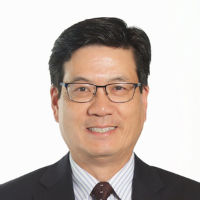
Dr. Benjamin Wu joined Forsyth in January 2023 as the Chief Scientific Officer. Before his appointment at Forsyth, Dr. Wu was the Professor and Chair of the UCLA Division of Regenerative and Reconstructive Sciences for 23 years, and Director of the Weintraub Center for Reconstructive Biotechnology at the UCLA School of Dentistry.
Week 12: Final Pitch Presentations
Teams will present their project in a pitch competition before a committee of experts in translational research. Prizes that far exceed the registration fee in value await the winners.
Committee


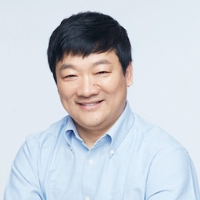
Dr. Wenyuan Shi is currently the Chief Executive Officer & Chief Science Officer of the Forsyth Institute, an affiliate of the Harvard School of Dental Medicine. Prior to this position, Dr. Shi was the chairman and professor of Oral Biology at the UCLA School of Dentistry as well as Professor of Microbiology, Immunology and Molecular Genetics at the David Geffen School of Medicine at UCLA. Dr. Shi has led multiple NIH grants to use multidisciplinary approaches to study oral microbiome with a specific focus on microbial biofilm, inter-species interaction and signal transduction. In addition, Dr. Shi’s laboratory is actively involved in the development of next generation diagnostic and therapeutic tools against oral microbial infections, including instant chairside detection of oral pathogens and peptide based targeted antimicrobial therapeutics. These translational research efforts have resulted in novel technologies that are licensed and developed by major pharmaceutical, dental and biotech companies. Dr. Shi is also the founding scientist, former chief scientific officer and chairman of the scientific advisory board of C3J Therapeutics Inc. (www.c3-jian.com).



